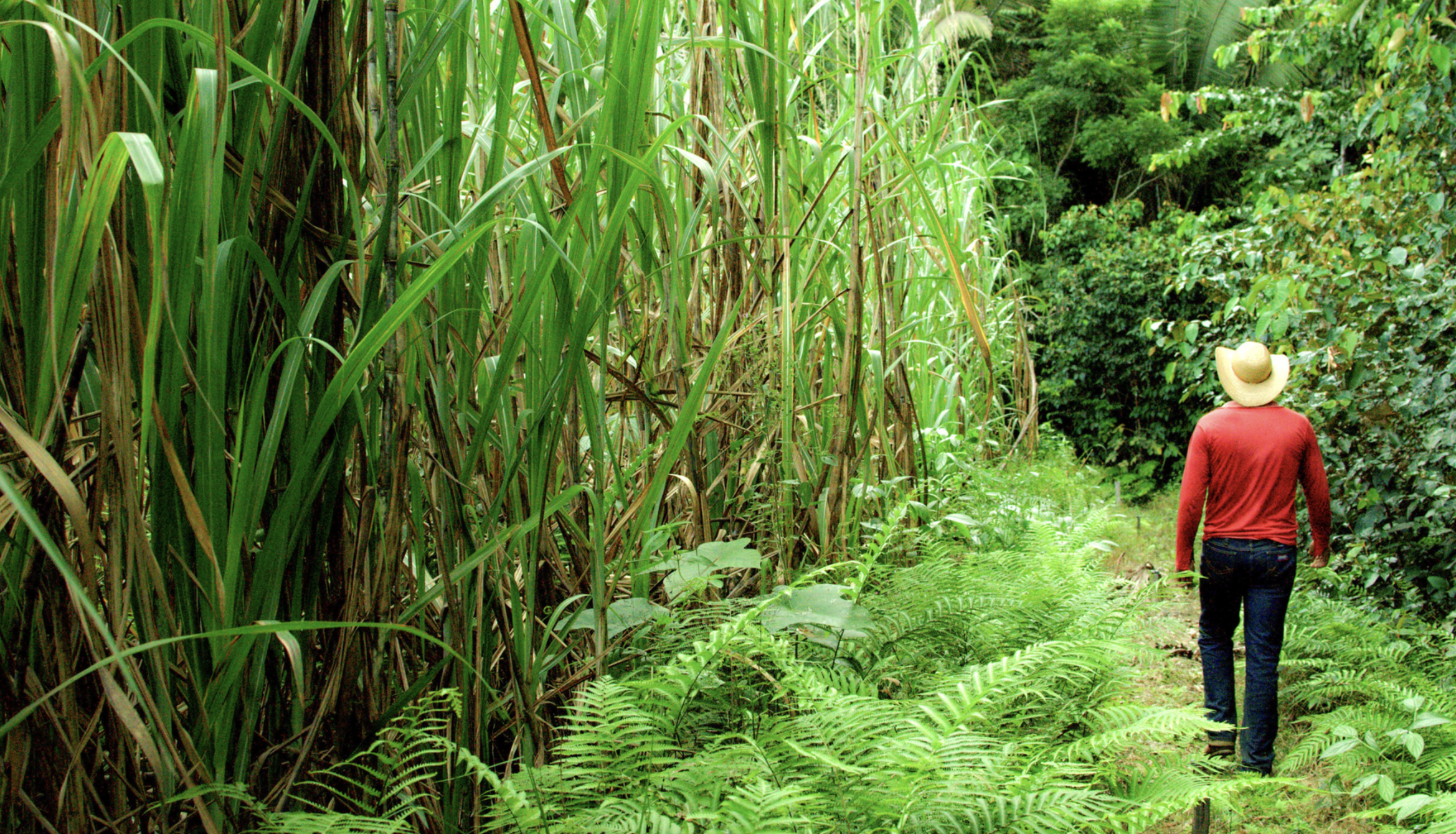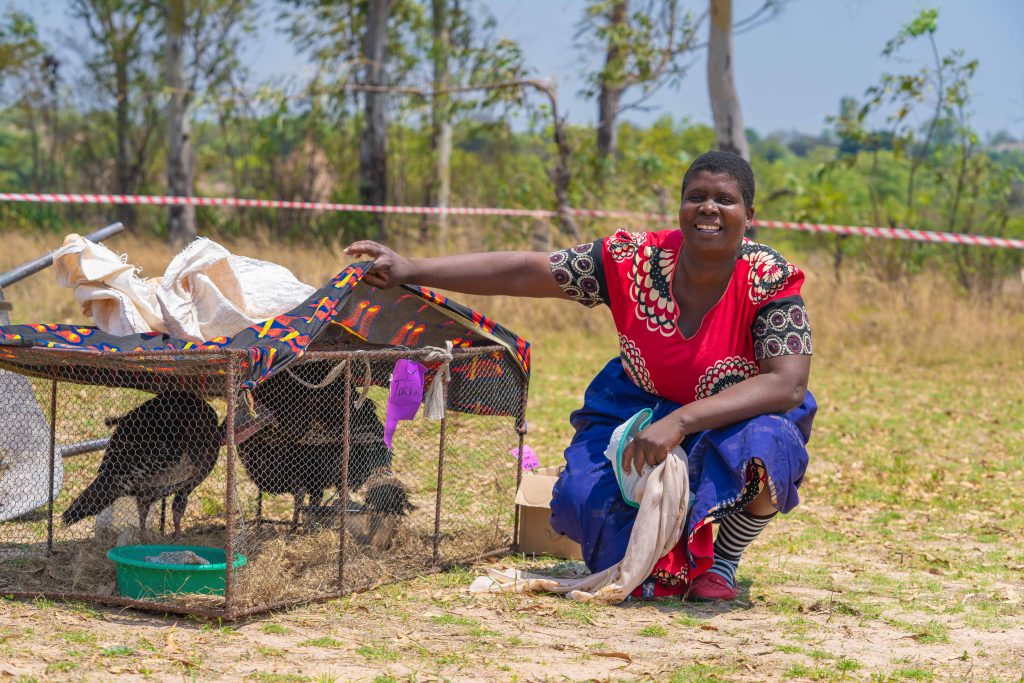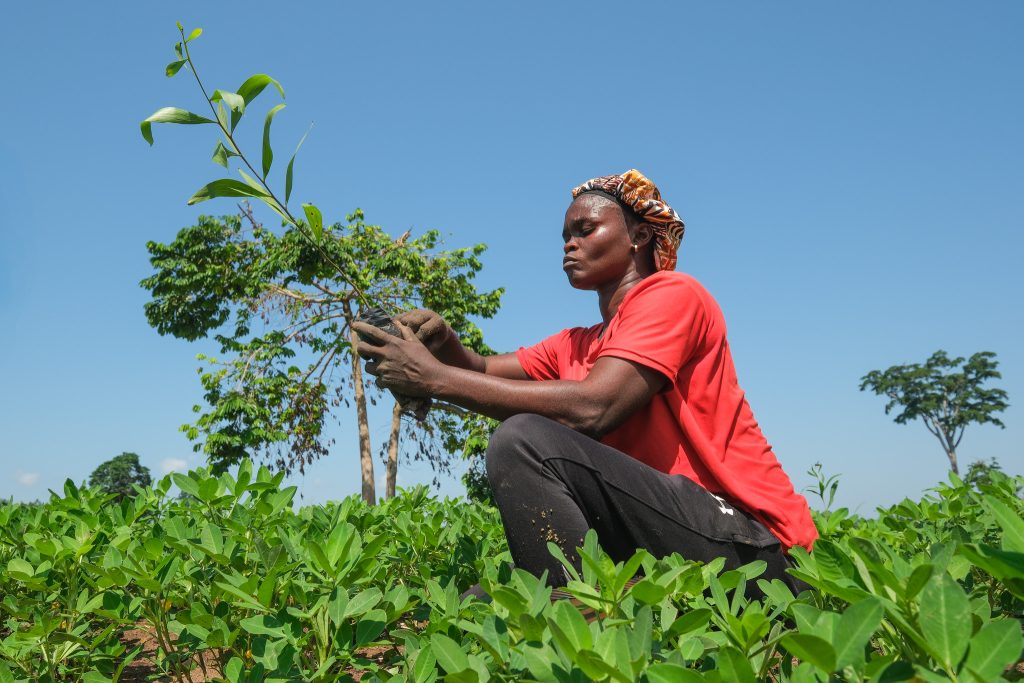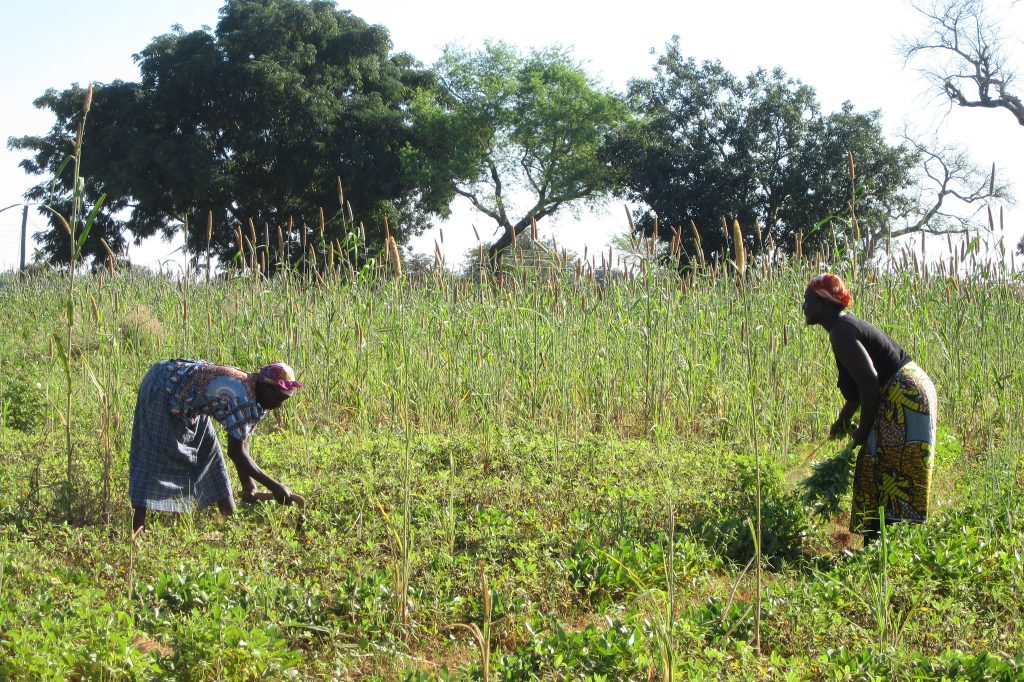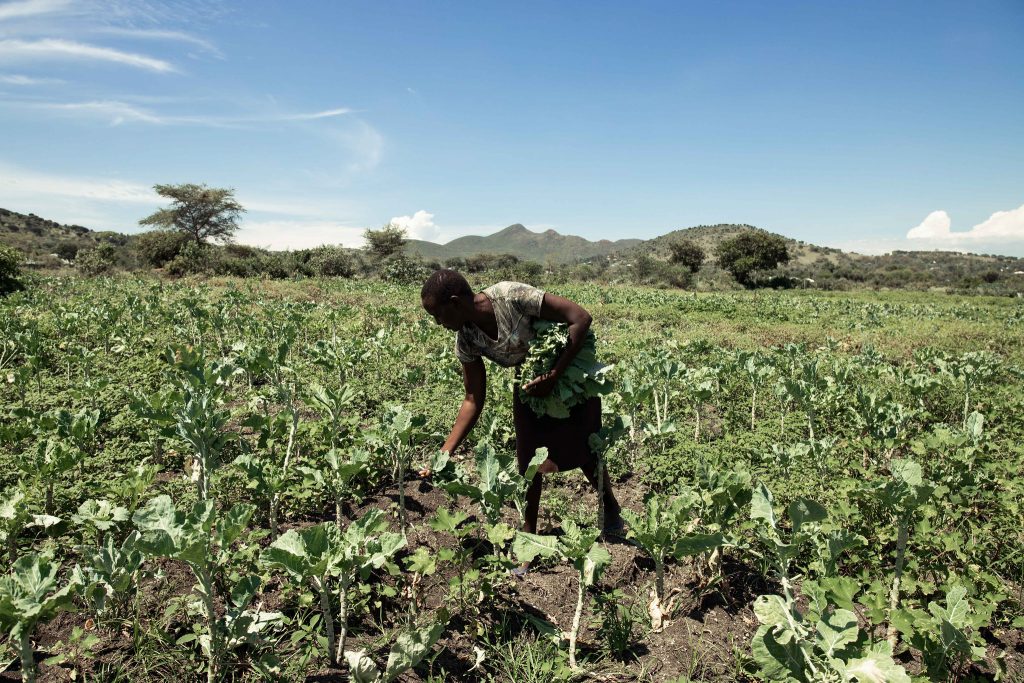Globally, agriculture covers 40% of the earth’s surface and food systems are responsible for one-third of humanity’s contribution to global climate change. Yet, smallholder and subsistence farmers are among the most vulnerable to climate change, facing extreme weather events and food price volatility that threaten livelihoods, biodiversity, and food security.
This Agroecology4Climate project focuses on agroecological transitions in vulnerable farming communities in Canada, Germany, India, and Brazil. It aims to explore how agroecological networks—comprising farming organizations, institutional actors, and consumer groups—can promote the perennialization of agriculture, thereby supporting climate adaptation and mitigation efforts.
Perennialization integrates annual and perennial crops and trees into the same farming system. Unlike annual cropping systems that currently dominate global agriculture, perennial crops offer significant benefits for climate adaptation and mitigation. They enhance carbon sequestration in tree biomass and soil organic carbon and provide resilience against soil degradation, drought, and other extreme weather events. From a social wellbeing perspective, agroforestry and other diversified perennial systems present opportunities to adapt to climate change and alleviate poverty. These systems can lead to higher and more stable farm incomes, balanced agricultural labor across growing seasons, improved working conditions, and better nutrition and health. Using a participatory research approach, this project will test the relationships between various leverage points driving the adoption of agroforestry and other practices supporting agricultural perennialization. It will work on sampling farms and organizations across a gradient from low-diversity farming systems to perennial and agroforestry-based systems. Employing both qualitative and quantitative methods, the project will assess climate resilience outcomes and estimate the scalability of these practices. The cross-case synthesis will also consider local institutional, environmental, and relational contexts to inform decision-making.
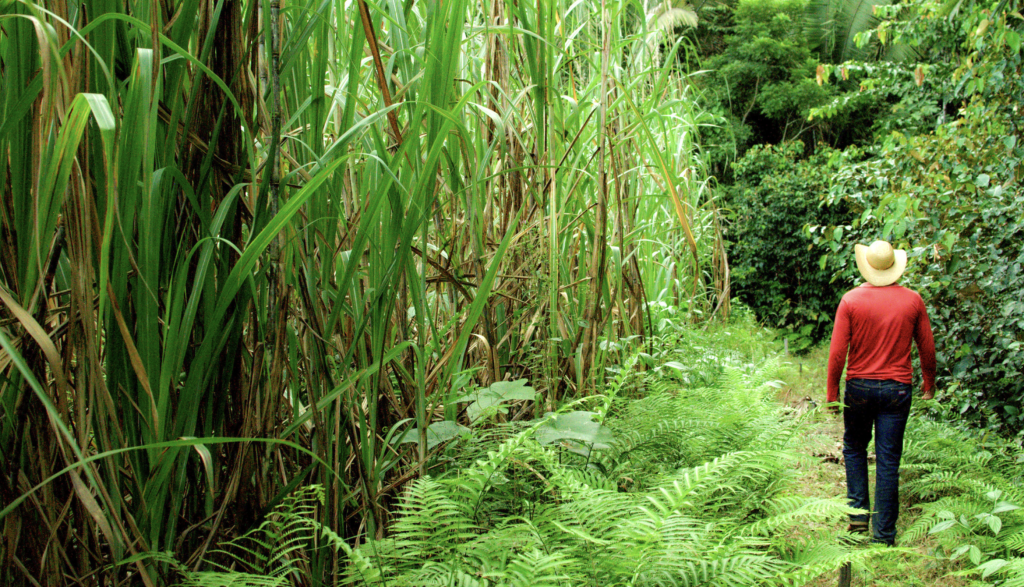
Project scope and aim
The project focuses on three main Research Objectives (Work Packages) to test the hypothesis that agroecology achieves the greatest climate mitigation and adaptation impact when farmers combine agroecological practices with participation in agroecological movements grounded in agroecological values.
1. WP1 aims to synthesize the current state of knowledge and identify future research needs through a qualitative and quantitative meta-analysis.
2. WP2 will generate new scientific knowledge by conducting a field study in four countries, evaluating climate outcomes across gradients of agroecological practices and movements.
3. WP3 will support the scaling of agroecological transformation by co-producing practical knowledge with local collaborators and enhancing processes to leverage agroecological practices, movements, and values for climate mitigation and adaptation.
Modality
Work Package 1: Knowledge Synthesis
Global Meta-Analysis: Analyze the combined effects of agroecological practices and farmer network participation on climate mitigation and adaptation outcomes.
- Systematic Literature Review: Identify studies measuring climate mitigation or adaptation outcomes, comparing perennial agroecological practices with simplified annual systems (control), conducted exclusively on working farms (excluding research stations).Assess data from second-order meta-analyses and recent studies on the environmental and agronomic impacts of diversified cropping systems.
- Expand the search to include recent studies not covered in previous meta-analyses by using at least two research databases with relevant keywords.
Work Package 2: Field Studies
Data Collection (Farm Level Field Research): Larger and Core groups
- Productivity and agroecological movement participation (TAPE – LiteFarm).
- Agroecological values (Sensemaker survey).
- Climate mitigation (TAPE/ LiteFarm).
- Climate change adaptation potential (Qualitative and quantitative questions – TAPE and SHARP tools (LiteFarm)).
- Data Analysis
Work Package 3: Scaling AE Transformations Through Co-Production of Knowledge
- WP3.1 Local: Scaling Transformation Within Cases: 3 Workshops across personal, practical and political spheres
- WP3.2 Global: Scaling Transformation Across Cases: Global Co-Design/Synthesis Workshop
Timeframe
Steps of the Agroecology4Climate Project (2024-2028)
Work Package 1 (WP1): Year 1 – 2
• Systematic literature review
• Coding and data extraction
• Quantitative and qualitative data analysis
• Publications and outreach materials
Work Package 2 (WP2): Year 1 -3
• Adapt LiteFarm app
• Identify farmer core group
• Co-develop study design
• Field measurements and surveys
• Quantitative and qualitative data analysis
• Co-interpretation of results
• Publications and outreach materials
Work Package 3 (WP3) (Year 1 -4)
• Local workshops
• Within-case learning
• Global workshops
• Cross-case learning
• Publications/outreach
Critical Workshops
1. Project launch: Year 1, Q3
2. Visioning workshop: Year 2, Q3
3. Practical workshop: Year 3, Q1
4. Political workshop: Year 3, Q3
5. Closing meeting: Year 4, Q3
Key members and partners
- Wittman, Hannah – Nominated Principal Investigator
Professor, The University of British Columbia, Faculty of Land and Food Systems, Canada
2. Seufert, Verena – Co-Principal Investigator
Juniorprofessor, University of Hohenheim, Sustainable Use of Natural Resources, Germany
3. Mancano Fernandes, Bernardo – Co-Principal Investigator
Associate Professor, Sao Paulo State University (UNESP), Department of Geography, Brazil
4. Raghavan Sathyan, Archana – Co-Principal Investigator
Assistant Professor, Kerala Agricultural University, Department of Agricultural Extension Education, India
5. Sansolo, Davis – Co-Applicant
Professor, Sao Paulo State University (UNESP), Biology and Environmental Science, Brazil
6. Coca, Estevan – Co-Applicant
Adjunct Professor, Sao Paulo State University, Territorial Development in Caribe and Latin America Undergraduate Program, Brazil
7. Kernecker, Maria – Co-Applicant
Scientist (Tenure Track), Leibniz Centre for Agricultural Landscape Research,
Research Area 3: Agricultural Landscape Systems, Germany
8. Smukler, Sean – Co-Applicant
Associate Professor, The University of British Columbia, Faculty of Land and Food Systems, Canada
Related resources
- The University of British Colombia: https://ubcfarm.ubc.ca/csfs-research/agroecological-transitions-for-climate-adaptation-and-mitigation/
- University of Hohenheim: https://sustainability.uni-hohenheim.de/en/agroecologicaltransitions
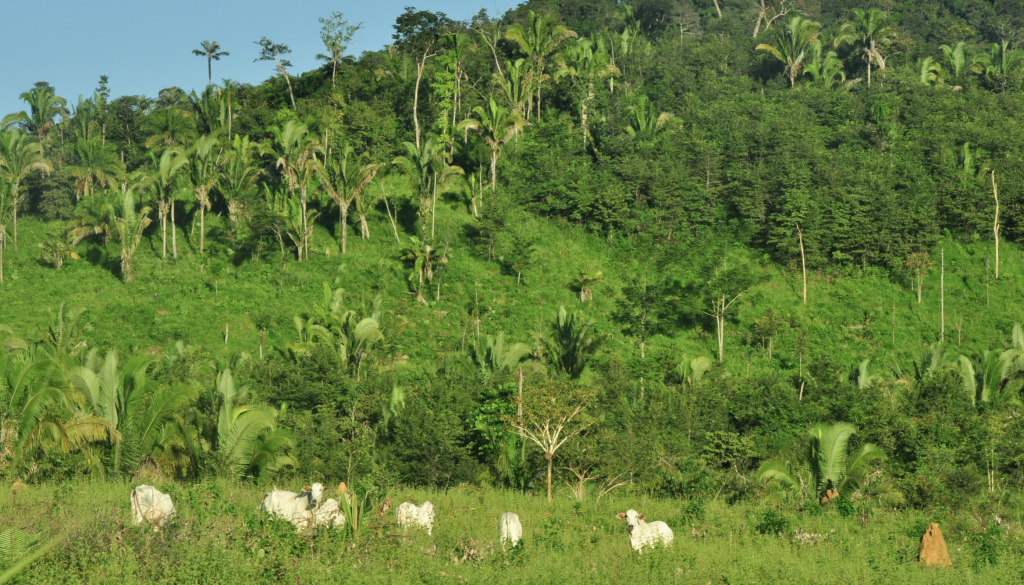
Locations
- British Columbia, Canada
- Sâo Paulo, Brazil
- Brandenburg, Germany
4. Kerala, India
Case studies
The project applies consistent theoretical frameworks and methodologies across all four case study areas to ensure comparability and facilitate cross-case learning. By doing so, the aim is to generate both scientific and practical insights urgently needed to effectively mitigate adverse climate impacts on vulnerable farming communities in diverse contexts.
- British Columbia, Canada
Southwest British Columbia (BC) is a highly productive and diverse agricultural region facing significant vulnerability to climate change. Projections indicate temperature increases of 2.2° to 4.3°C by 2050, along with reduced summer rainfall by 12% and winter precipitation by 50%. These changes threaten limited irrigation resources, alter pest and pollinator dynamics, and jeopardize farmer livelihoods, food security, and regional economies. Agroecological practices, including perennialization and diversification, are being promoted by local agricultural movements and government initiatives like the Perennial Crop Renewal Program, aimed at enhancing climate resilience among horticulture farmers affiliated with OrganicsBC.
- São Paulo, Brazil
The Atlantic Rainforest in São Paulo, Brazil, faces severe biodiversity loss and climate risks, with small-scale farming communities in buffer zones particularly vulnerable to urbanization, land speculation, and extreme climate events. Our study focuses on communities near protected areas within the Atlantic Rainforest, collaborating with groups like the Landless Workers Movement (MST) and the Solidarity Economy Forum to explore agroecological practices and local market networks aimed at enhancing resilience against these multifaceted challenges.
- Brandenburg, Germany
Brandenburg, Germany, characterized by marginal lands and sandy soils, confronts climate vulnerabilities such as droughts and inequitable land access. Agricultural responses include agroecological practices supported by the EU’s Common Agricultural Policy, notably the Eco Scheme. Our research involves partnering with organizations like AbL and Demeter to study diversified perennial systems among smaller and biodynamic farmers, aiming to bolster resilience in this vulnerable agricultural community.
- Kerala, India
Ranked as one of the world’s most climate-vulnerable regions, Kerala, India, has experienced increased frequency of extreme weather events, exacerbated food insecurity and impacting farmer livelihoods. Traditional agroforestry systems, advocated by local organizations like Thanal and Kerala Jaiva Karshaka Samithi, hold promise in enhancing climate resilience by integrating perennial export crops with local food production, stabilizing incomes, and diversifying food sources for urban markets.
Key contacts
- Jun-Prof. Dr. Verena Seufert verena.seufert@uni-hohenheim.de
- Dr. Anne Elise Stratton ae.stratton@uni-hohenheim.de
- Prof. Hannah Wittman hannah.wittman@ubc.ca
Project’s alignment to the Agroecology TPP: what is the value for the AE-TPP?
The Agroecological Transitions for Climate Adaptation and Mitigation (Agroecology4Climate) project can significantly enhance the Transformative Partnership Platform (TPP) by closely aligning with its goals and strategies. This project focuses on fostering agroecological transitions through diversified perennial systems, supporting the TPP’s aim to accelerate and coordinate agroecology efforts across various scales to promote sustainable agricultural and food systems. The project’s emphasis on perennialization—integrating annual and perennial crops and trees—contributes directly to building resilient landscapes. This aligns with the TPP’s objective of advancing agroecological practices that enhance carbon sequestration, reduce chemical inputs, and bolster climate resilience.
Operating on international, national, and local scales, the project conducts field studies and participatory research in Canada, Germany, India, and Brazil in close collaboration with farming communities. This multi-scalar approach offers valuable insights and data to inform the TPP’s global strategies, enhancing its ability to coordinate agroecology efforts worldwide. The project’s commitment to synthesizing participatory research and engaging with local farming communities aligns with the TPP’s aim to add value, link with, and contribute to existing agroecological initiatives. By collaborating with local stakeholders, farming organizations, and consumer groups, the project enriches the TPP’s network and knowledge base. The project’s emphasis on agroecological values aligns with the principles of agroecology defined by the CFS HLPE and the ten elements developed by FAO. By adhering to these principles—such as diversity, synergy, recycling, and resilience—the project reinforces the TPP’s commitment to promoting holistic and sustainable agricultural practices.
To conclude, the Agroecology4Climate project can add substantial value to the TPP by advancing agroecological practices, operating across multiple scales, linking with existing initiatives, and aligning with core agroecological principles, thereby enhancing the collective impact in promoting sustainable agriculture worldwide.
How does the alignment to the Agroecology TPP enrich the project?
The Transformative Partnership Platform (TPP) can substantially benefit the Agroecology4Climate project by providing a well-established framework and network for disseminating research findings and scaling successful practices. The TPP’s well-established science-policy interface provides a crucial channel for the project’s findings to influence global and national policies, ensuring that the benefits of agroecological practices are recognized and supported at multiple governance levels. By aligning with the TPP, Agroecology4Climate can leverage this interface to advocate for policies that promote diversified perennial systems and reduce dependency on chemical inputs, thereby enhancing the project’s impact.
Moreover, the TPP’s extensive network of partners, which includes international institutions, national bodies, and local organizations, offers a valuable platform for collaboration and information exchange. This network can facilitate the sharing of best practices, innovative approaches, and empirical data among diverse stakeholders, enriching the Agroecology4Climate project’s research and implementation strategies. The TPP’s commitment to inclusiveness and stakeholder engagement ensures that the voices of farmers, community groups, and other local actors are heard, aligning with the project’s focus on participatory research. This can lead to more robust and contextually relevant solutions that address the specific needs and challenges of farming communities in Canada, Germany, India, and Brazil.
Additionally, the TPP’s active role in addressing knowledge and implementation gaps in agroecology can provide the Agroecology4Climate project with critical resources and support. By tapping into the TPP’s expertise and ongoing initiatives, the project can refine its methodologies, enhance its field studies, and scale up successful practices more effectively. In essence, the TPP’s comprehensive and collaborative approach can significantly bolster the Agroecology4Climate project, driving forward the shared vision of sustainable and resilient agricultural systems.

